Five words that tipped parents’ world on its axis
Ashlee Eager was meant to be celebrating Father’s Day with her young family, but instead her world unravelled as she went into labour just 23 weeks pregnant.
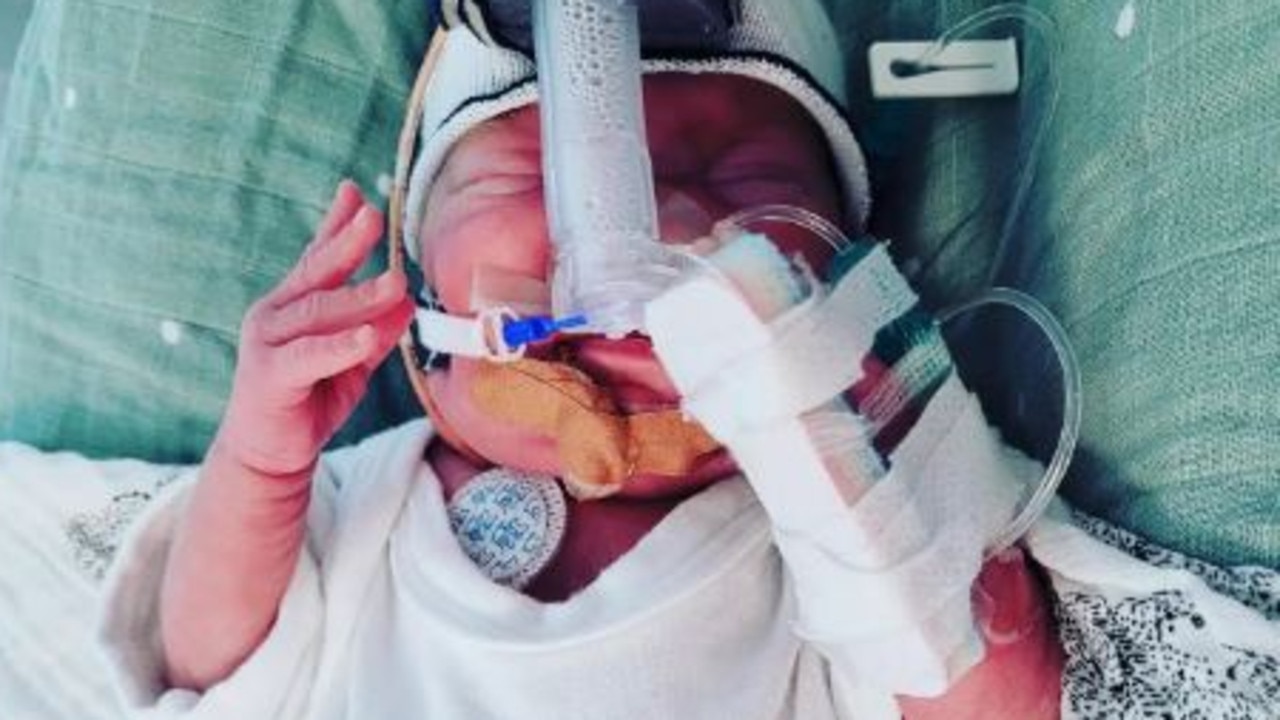
It was the afternoon of Father’s Day 2021 when Queensland parents Ashlee Eager and her partner Ben Walsh, along with their 11-year-old son Lestat, were preparing to spend some family time together.
Twenty-three weeks pregnant with a baby girl, the Scenic Rim schoolteacher had been feeling run down, and was looking forward to a relaxing evening.
“Ben had gone just to the corner store to buy some ice cream, because we were going to watch a movie,” Ashlee remembers.
“By the time he got back, I said ‘I think you need to take me to the hospital, because I think my water just broke.’ I was praying that I’d just had an accident, as embarrassing as it would have been, because the alternative – that this baby was coming at just 23 weeks – was too awful. I was just thinking – it’s way too early. There’s no way she can survive at this point.”
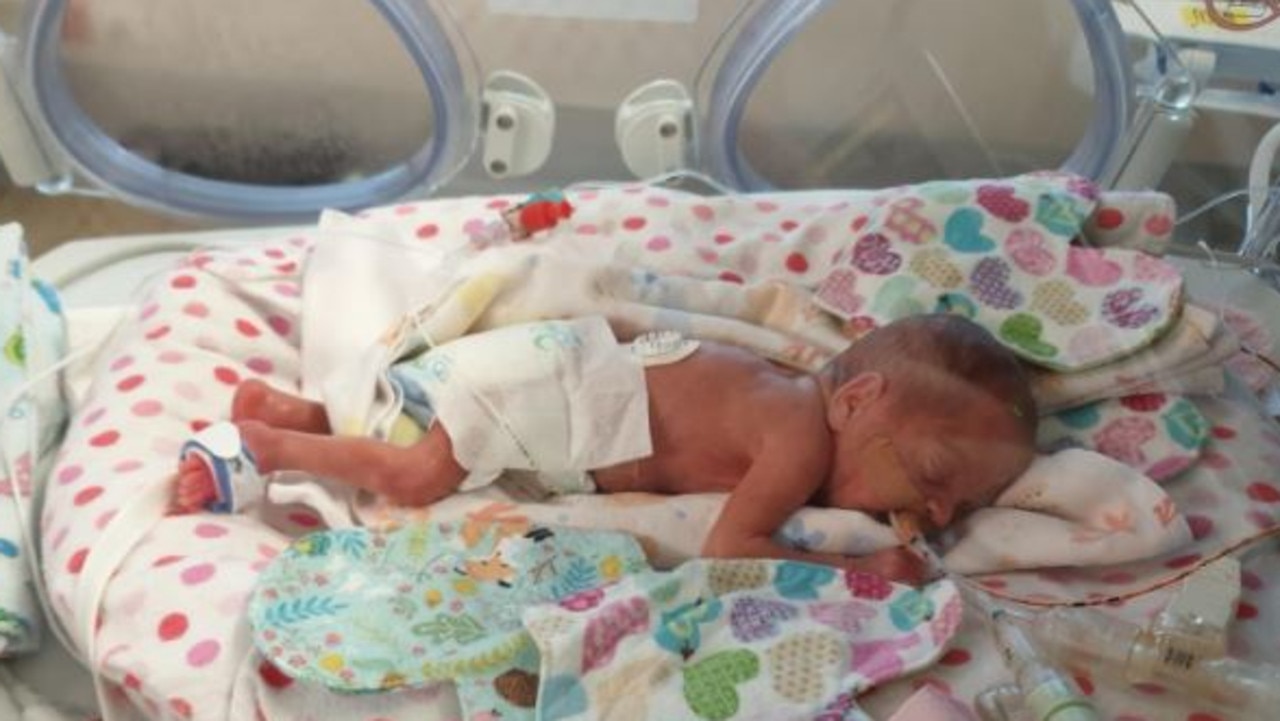
By the time Ashlee and Ben had made the 80km trip to Brisbane from Kalbar – a journey Ashlee describes as “both the fastest and slowest drive of my life,”- the hope she was holding onto that this could be anything other than labour was quickly fading.
At the Pregnancy Assessment Centre at Mater Mothers’ Hospital, Ashlee and Ben were rushed to an examination room where doctors confirmed their baby’s heartbeat.
“When we heard that heartbeat, it was such a relief,” Ashlee says.
“We looked at each other and kind of breathed – she was still there. We started to think, OK, she’s alive, this might all be OK. Unfortunately, about 10 minutes later, the obstetrician came in and said ‘no, everything’s not okay. She’s actually in a bit of distress and you’ve got a fever, and your waters have ruptured, so we think you possibly have some kind of infection, which is why she’s come on so early’.”
The doctor’s next words tipped the worried parents’ world on its axis.
“And we can’t stop it.”
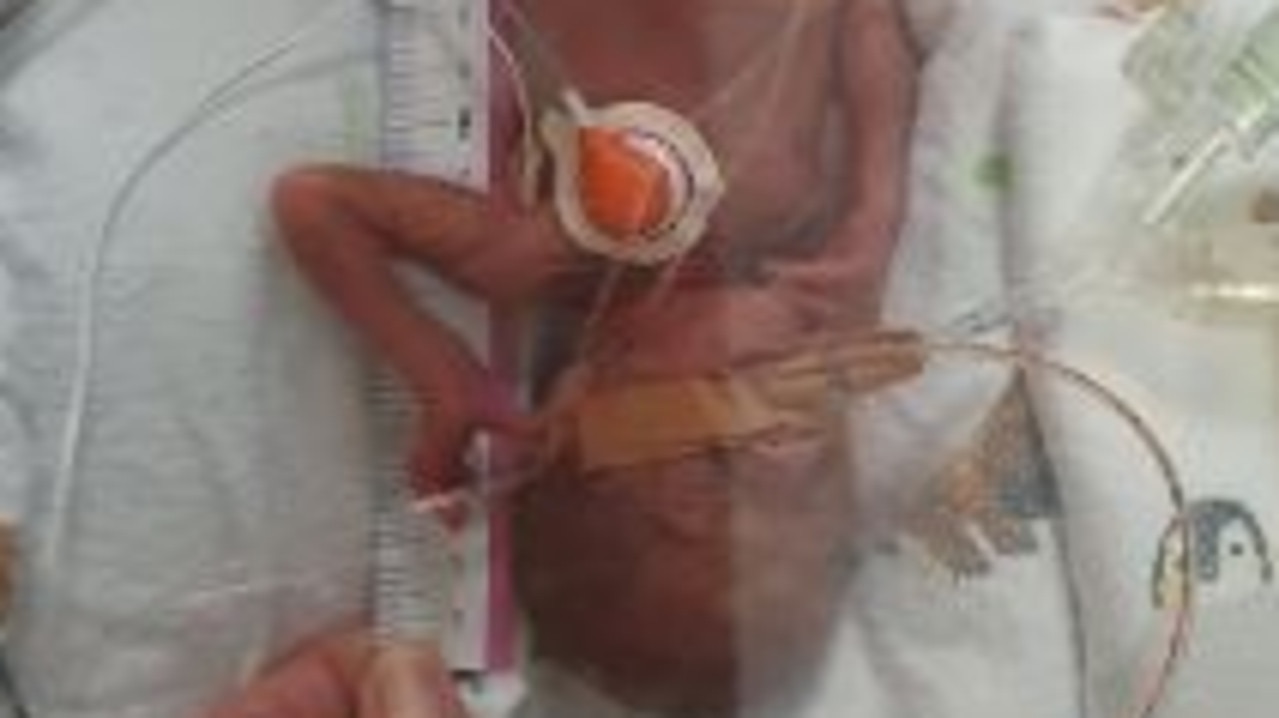
Ashlee and Ben were very quickly given their options.
“One of the doctors from the Neonatal Critical Care Unit (NCCU) came down and told us there’d be a 40 per cent chance that she would survive,” says Ashlee. “And then we would have to face other decisions after that, and she could face health issues and other things, but looking at them we both said ‘well, 40 per cent is better than zero. We decided that if she came out and survived the birth, then we’d fight. We would let her decide – we wouldn’t just let her go.”
At 1:31am the following morning, Moira Walsh came wriggling into the world, weighing a seemingly impossible 546 grams, and trying to breathe. She was the smallest and most premature baby Mater delivered that year.
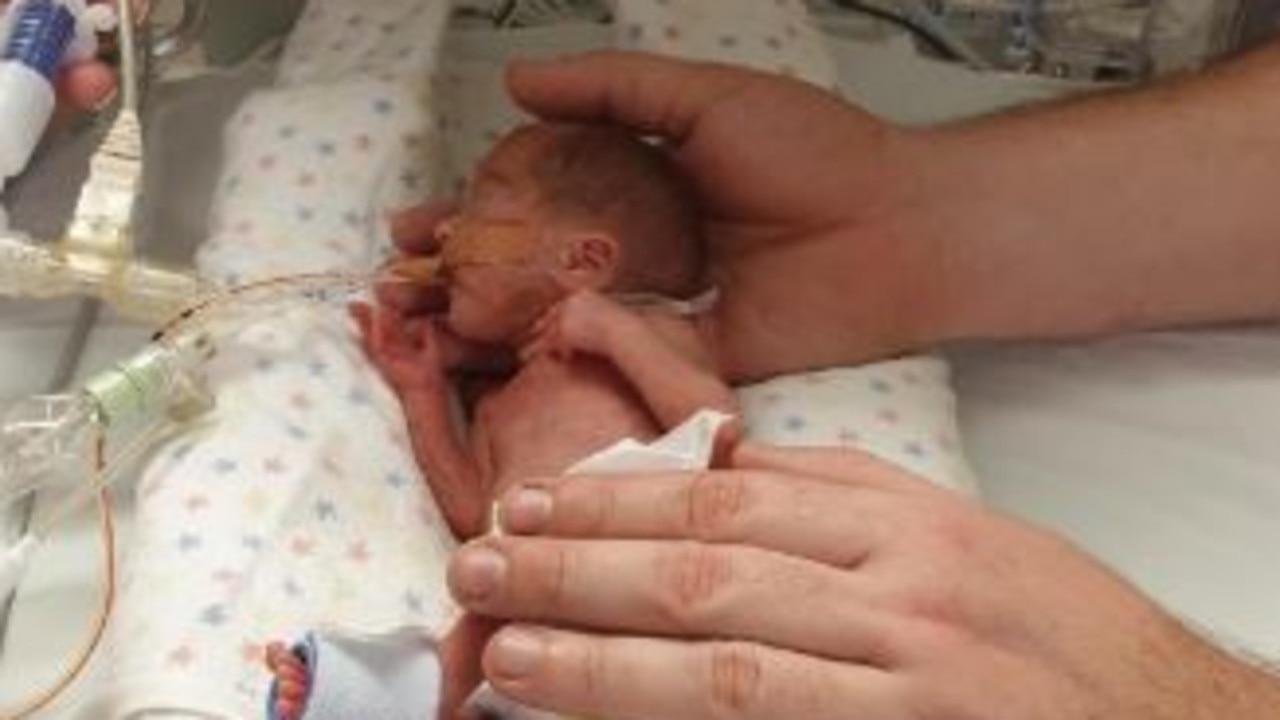
“The nurses and the doctors that were there waiting to work on her were shocked at how feisty she was from the moment she came out,” Ashlee laughs.
“She made sure that everybody knew she was there, and she was not giving up.”
After being whisked away to a resuscitation room, Moira was intubated with her dad by her side, then taken to the NCCU and placed in a humidicrib.
It was 16 hours before Ashlee would be able to see her baby again, and when she did, Moira was wrapped in a plastic sheet to keep her skin moist and warm, with tubes and wires all over her tiny body.
“There she was, this teeny weeny little wriggly pink baby who looked like a doll – sort of just cocooned in a little nest of blankets. It was incredibly scary, but also, it was the moment I got to touch my little baby’s hands. She was so small, her whole hand could just fit around the tip of my husband’s finger – she couldn’t even close it, the tip of his finger took up her entire hand.”
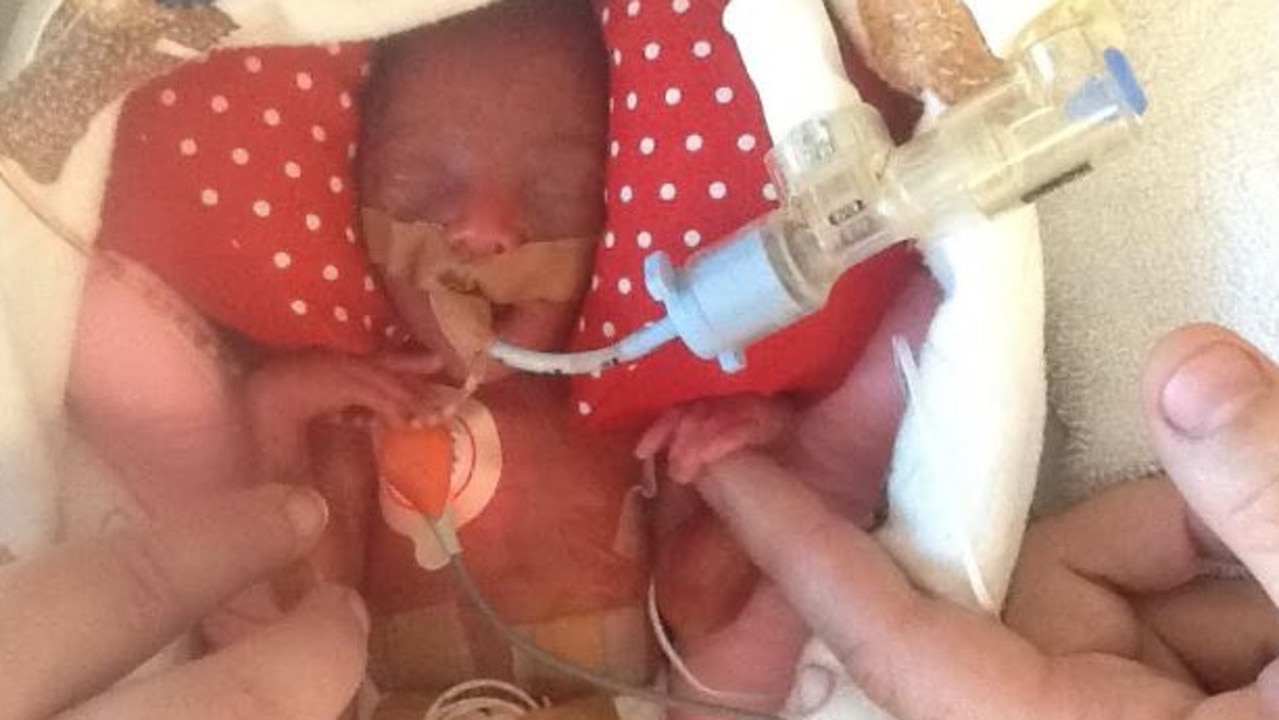
While Moira had survived birth, doctors warned her parents the road ahead was anything but easy.
“They said it would be a rollercoaster and there is really no other way I could describe it,” says Ashlee, who was provided hospital accommodation while Ben remained at home to care for their son.
In the days and weeks that followed, Moira encountered a number of life-threatening challenges. She developed a condition called pre-NEC, which is the beginnings of Necrotising Enteritis, where the baby’s gut begins to break down. She was taken off the expressed milk she had been receiving, and put on antibiotics. She also developed a skin infection – life threatening in babies – and the skin on her chest and neck began to degrade.
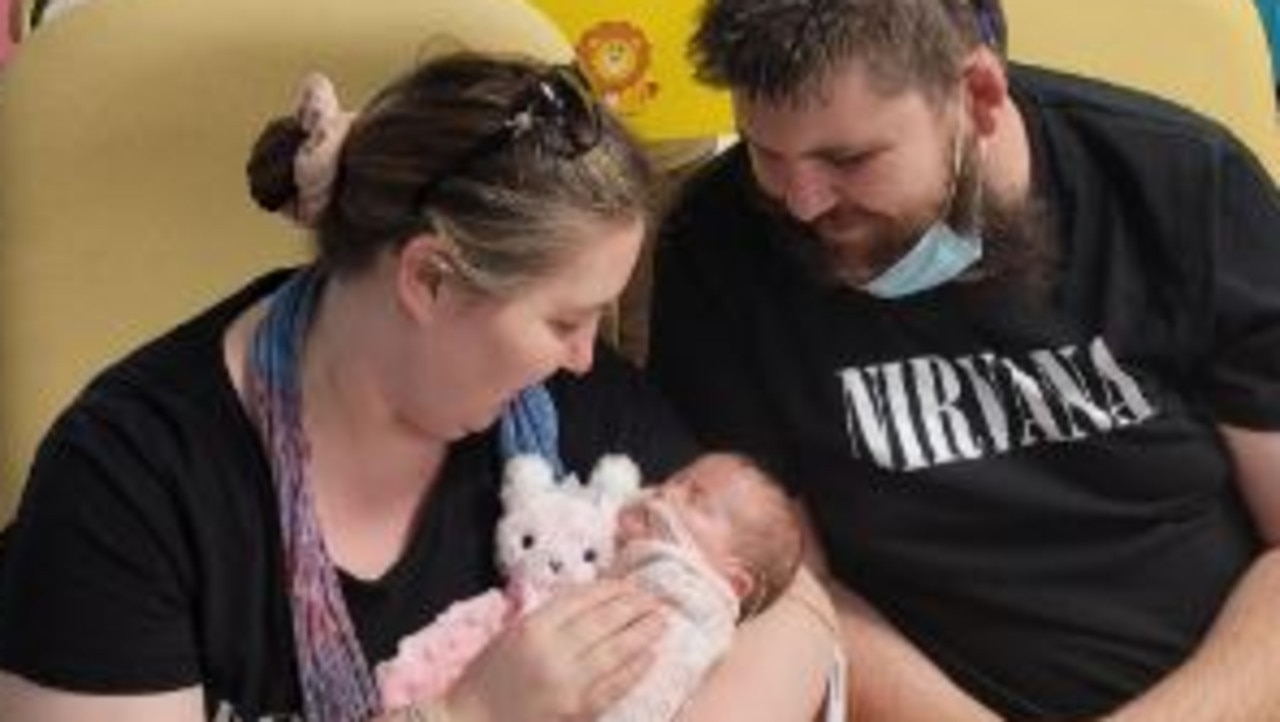
Slowly though – sometimes hour-by-hour, just as she had that first day – Moira got stronger, and bigger. And in spite of the significant health issues she was struggling to overcome, the ‘feisty’ baby lived up to her first impression.
“They used to refer to her area of the NCCU as the naughty corner,” her mum laughs. “The nurses all fell in love with her. It was always Moira’s way or the highway.”
“We just didn’t know how long we’d have her for,” says Ashlee, her voice catching, “so we bought her a toy every week from the little volunteer gift shop. A blanket one week, a book the next – we were determined to celebrate every milestone, for as long as we could still celebrate.”
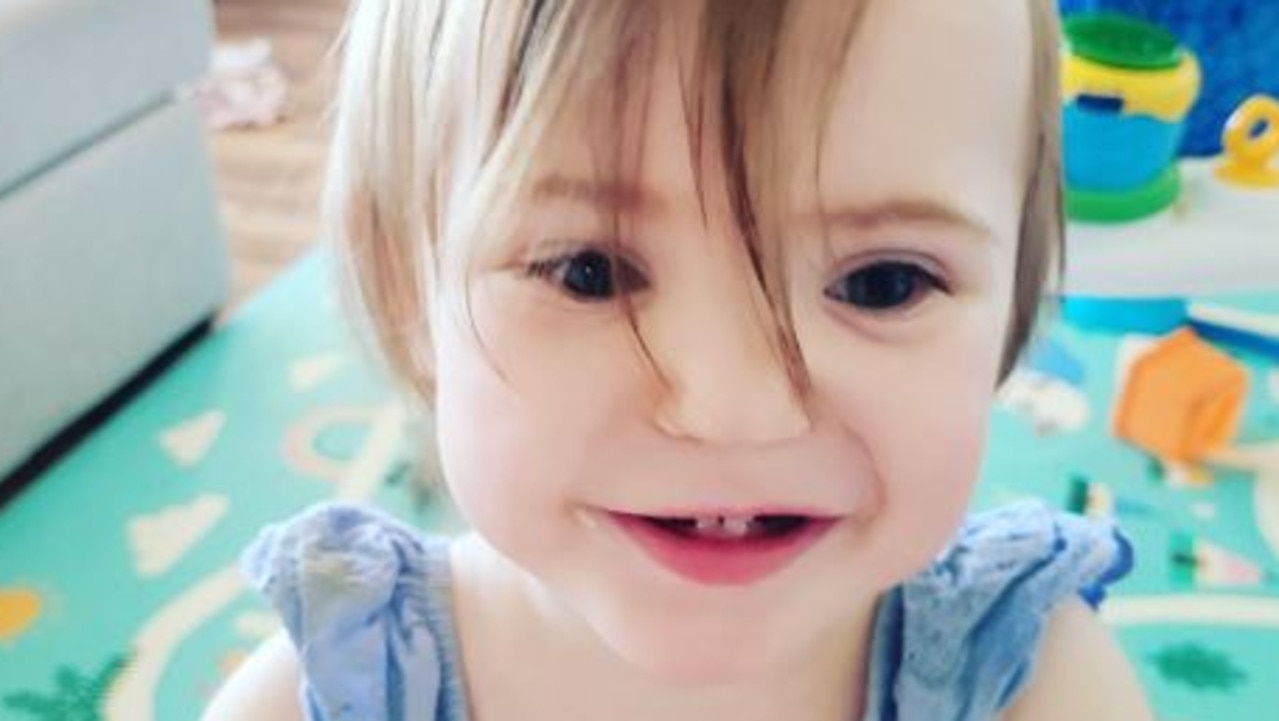
It wasn’t until Moira had been in NCCU for seven weeks that Ashlee started to realise she might be out of the woods.
“It was a small thing, but a doctor referred to “when” she goes home. Before then, they’d never mentioned it like a certain thing before. It was like a sigh of relief.”
That sigh was nothing, however, in comparison to the one Ben and Ashlee gave the day they were told they were able to bring her home: January 6 2022, four months and one day after she came rushing into the world.
“It was just the best feeling ever,” Ashlee says.
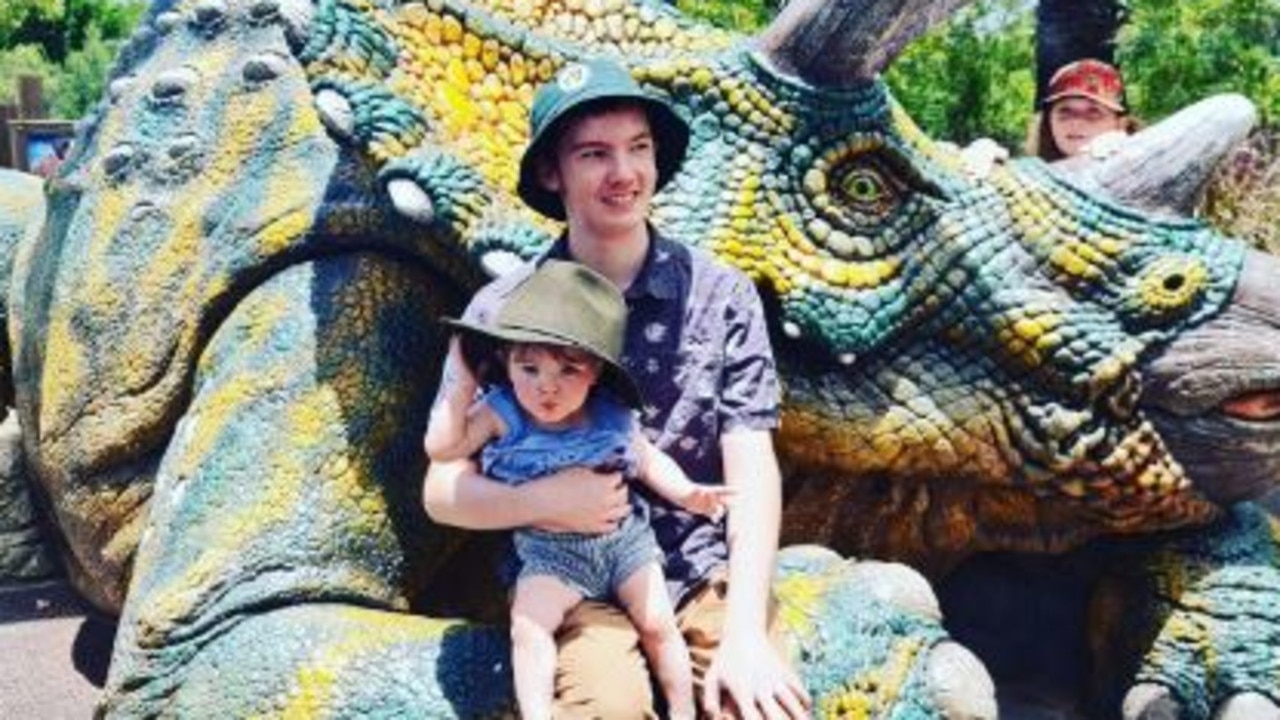
Moira will turn two in September, and Ashlee couldn’t be prouder of the little fighter who once fit inside the palm of her hand.
“She’s really, really, really good,” Ashlee beams.
“We have a few issues due to her being born so early – she’s waiting to have an operation to have grommets put in, as she has some hearing loss, so she’s not speaking yet, but she definitely makes herself known in other ways! She loves music, waving at everyone, and she adores her big brother.”
“As much as I’m glad I no longer have to spend every day there, I will forever be grateful to the Mater,” Ashlee says, “because they gave me my baby girl. And they perform miracles.”
Proceeds from Mater Prize Home ticket sales support vital medical research, equipment and patient care at Mater in Queensland. You can find out more here.



